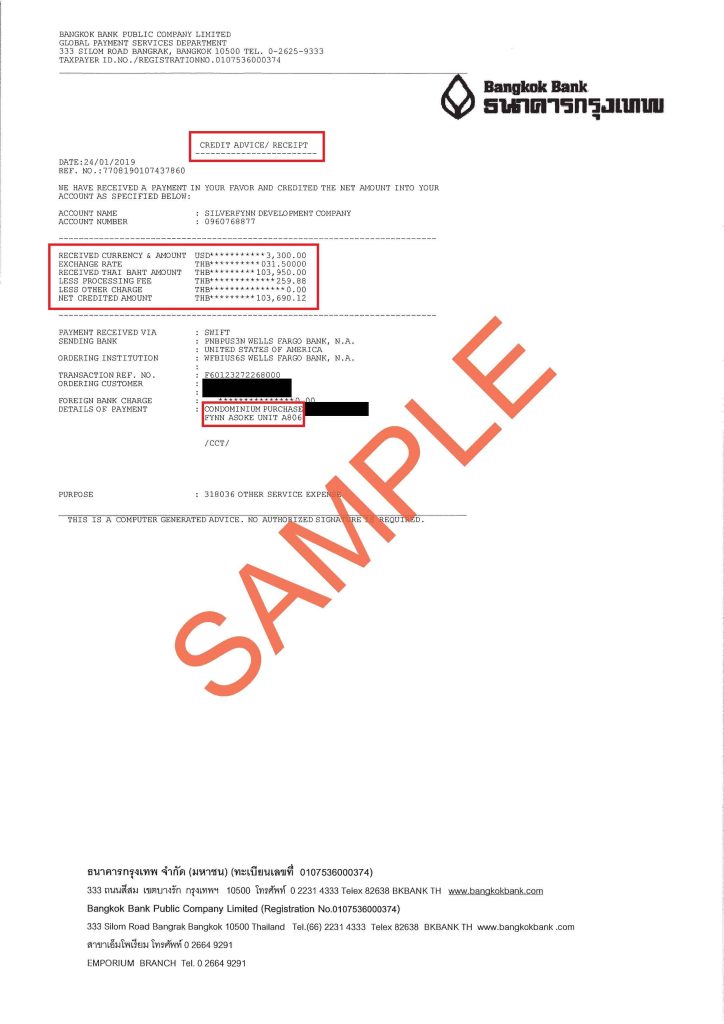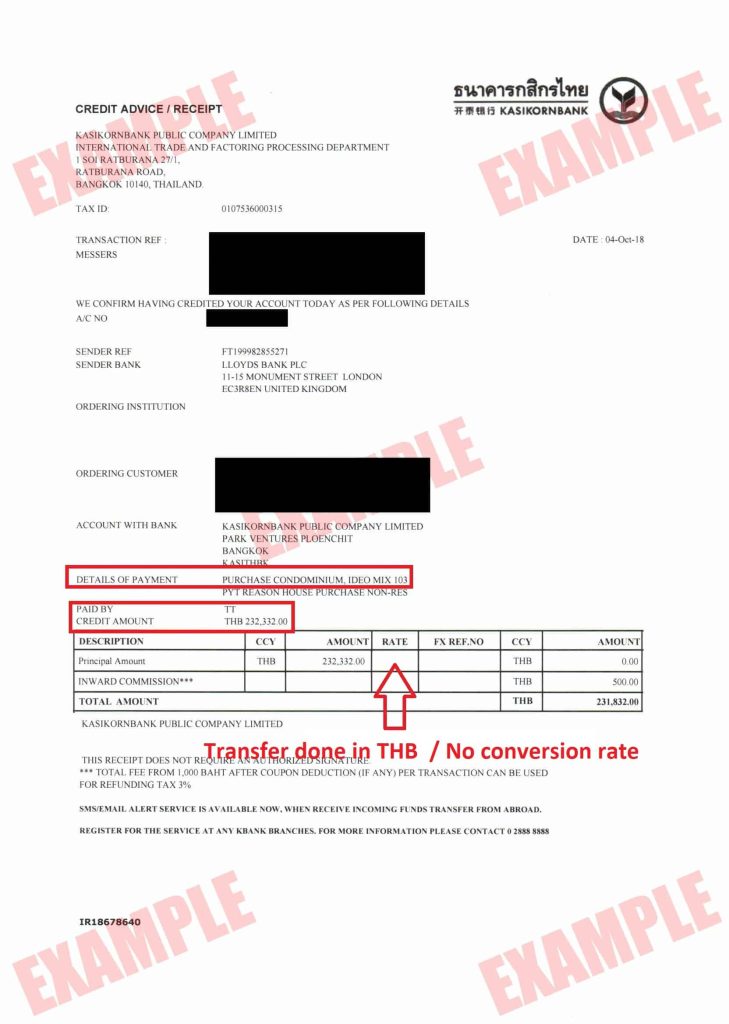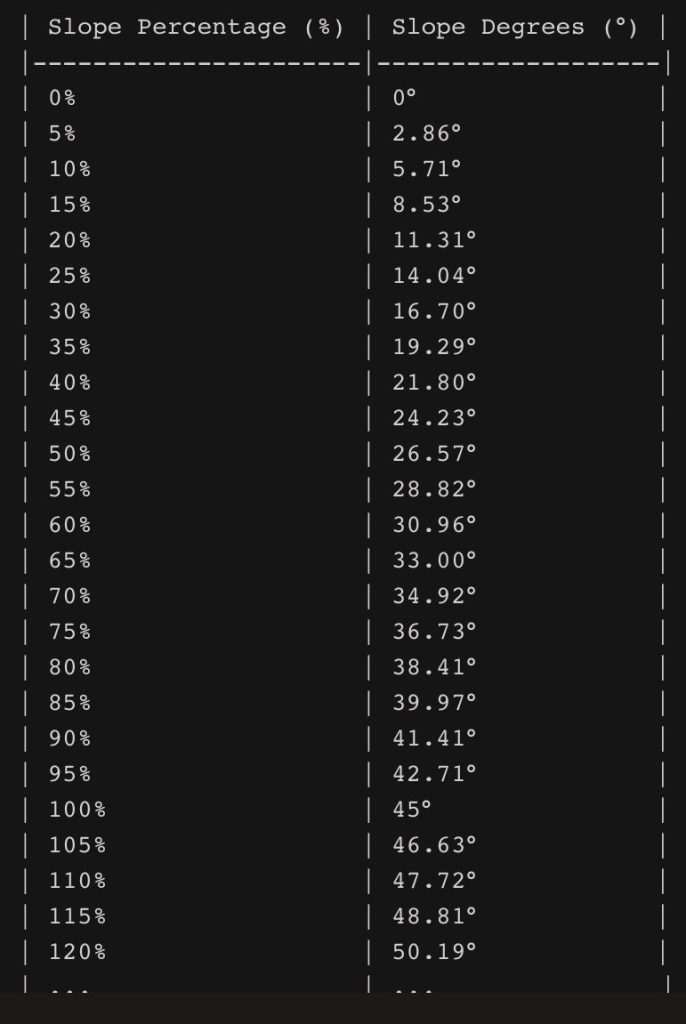How much do I need to retire in Thailand?
A recent study by NetCredit has estimated that a person would need, on average, $390,000 USD to retire comfortably in Thailand. The study based the amount on average equivalent quality of life a foreigner would enjoy in their native, home country. Although this is not true for every person, it is a good starting point in which to base your retirement funds.
To apply for a retirement visa in Thailand, the law dictates that applicants should have a savings of 800,000 THB or $25,000 USD in a Thai bank account. Another option is to show funds being deposited monthly into your Thai bank account in the amount of 65,000 THB or $2,000 USD.
6 Long Term Visa Options in Thailand
Thailand, a country with diverse weather, a low cost of living, and beautiful beaches, offers great long-term visa options for you to work, live, and build a family. With 156,596 expats estimated to move to Thailand in Q1-Q2 of 2023 to live or work, we are going to explore a variety of long-term and short-term visa options for your stay in Thailand.
- Long Term Resident (LTR) Visa
- Thailand Elite Visa
- Retirement Visa
- Smart Visa
- Business Visa
- Invesment Visa
Long Term Resident (LTR) Visa
The Long Term Resident (LTR) Visa in Thailand is becoming increasingly popular for expats. LTR visa options are available for wealthy individuals, wealthy pensioners, work-from-Thailand professionals, and highly skilled professionals. You can obtain an LTR visa for 5 years, which can be renewed for another 5 years. By obtaining an LTR visa, you benefit from fast-track service at international airports, permission to work, and tax exemption on overseas income.
A detailed requirements and step-by-step guide to applying for the LTR visa option in Thailand can be watched in the video here.
Thailand Elite Visa
Thailand Elite Visa options fall under the Tourist Visa category (Privilege Entry Visa) and offer residency in Thailand with benefits for 5, 10, or 20 years, depending on the package you select.
There are three main packages to choose from:
- Elite Easy Access
- Elite Privilege Access
- Elite Superiority Extension
For example, the Elite Easy Access package requirements are:
The first and entry-level package starts from only 500,000 THB (just under 16,000 USD), allowing you entry and residence for a period of 5 years anywhere in Thailand. Key features: Limousine, concierge, airport lounge, and banking services. You can listen to a full video here for the Thailand Elite Visa Option.
One of the main benefits for Elite Visa holders is that there is no requirement to exit the country every 90 days.
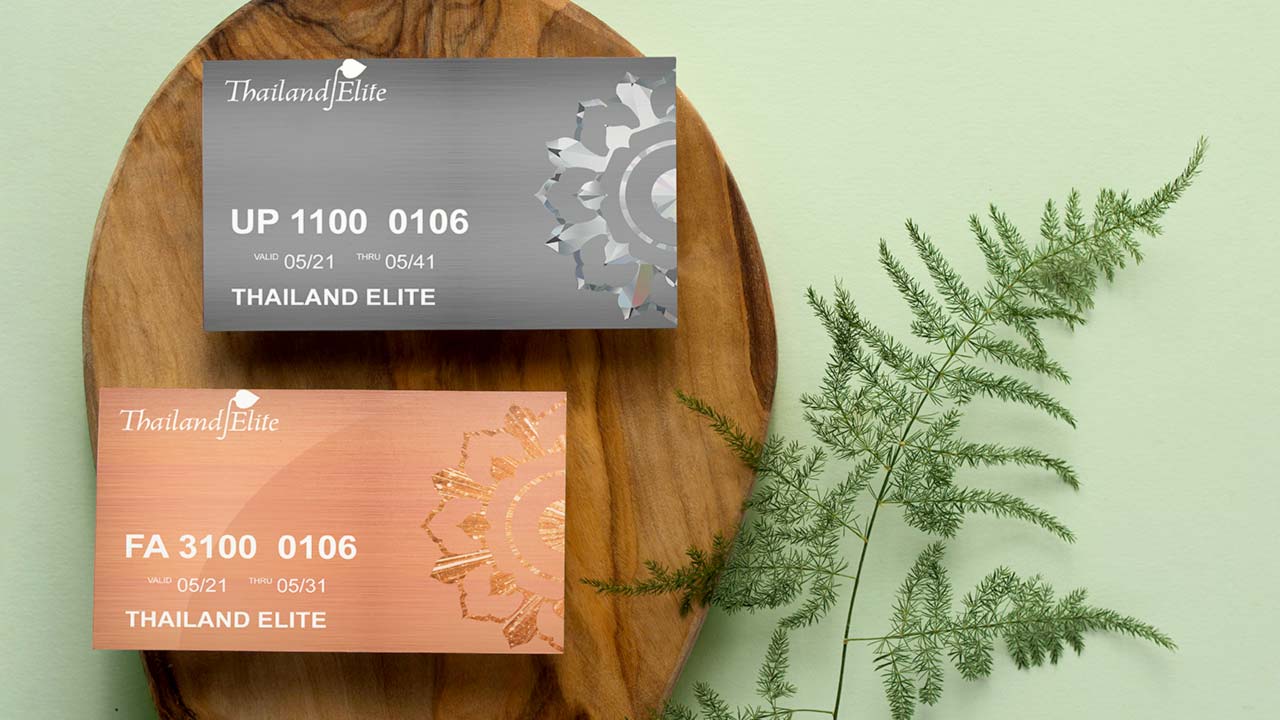
Retirement Visa
Retirees seeking to move and live in Thailand have the option to apply for the Retirement Visa. Retirees aged 50 and over can apply if they have a pension or monthly income of no less than 1,500 GBP or 1,907.53 USD (70,408.75 THB). Alternatively, for a Retirement Visa, you can deposit 18,600 GBP or 23,652.69 USD (872,784.26 THB) into a Thai bank account.
For a more detailed step-by-step approach to obtaining and applying for the Retirement Visa option in Thailand, you can listen to the video here.
Smart Visa
A new innovative visa option in Thailand is the Smart Visa. The Smart Visa is designed to attract highly skilled workers, investors, entrepreneurs, and executives in target industries such as Next-Generation Automotive, Digital, Smart Electronics, and more. Smart Visa holders can stay for a maximum of four years and are exempt from work permit requirements.
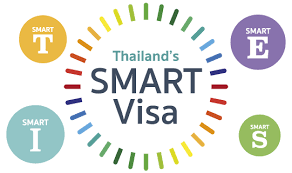
Business Visa
For expats looking to open a business in Thailand, you can apply for a Thai Business Visa, also known as a Non-Immigrant B Visa. The Business Visa is valid for 1 year and can be renewed. Furthermore, visa holders can eventually apply for permanent residency.
Investment Visa
For investors seeking to achieve rental yields, profit, and live in Thailand, you have the option of the Investment Visa. By applying for an investment visa, you can buy property in Thailand with high rental yields for a minimum of 10 million Thai Baht (230,000 GBP / 265,000 USD) or obtain Thai government bonds. The Thailand investment visa is obtained for 1 year and is extendable to family members. It is also eligible for renewal.
A video and information to obtain a investment visa in Thailand is here
Don’t miss out on your chance to make informed decisions and enjoy the best that Thailand has to offer. Contact us today for more information on how to start your journey!
Where is Ko Samui located?
Koh Samui island is around 750 kms south of Thailand’s capital of Bangkok. Located in the Gulf of Thailand, the island is the second largest in the country. While the rest of the country features an abundant monsoon season, Koh Samui enjoys considerably mild weather throughout the year.
In addition to its favorable weather thanks to its tropical savannah climate, the island’s Chumphon Archipelago geographical location protects it from possible tsunamis and other severe, tropical storms.
How many tourists visit Koh Samui each year?
Over 2 million tourists visit Koh Samui in the Gulf of Thailand each year, in 2023, a total of 2,815,016 visitors arrived.
Data for tourists visiting Koh Samui were collected from multiple sources, including government tourism agencies, industry reports, and local authorities. The analysis focused on annual visitor arrivals to the island over the past few years.
Koh Samui continues to be a magnet for tourists seeking sun, sand, and relaxation in a tropical paradise. Despite challenges posed by external factors, the island’s appeal remains strong, attracting millions of visitors annually. Sustainable tourism practices, infrastructure development, and collaboration among stakeholders will be crucial in ensuring the long-term viability of Koh Samui as a premier tourist destination. Continued monitoring of tourist visitation trends and adapting strategies accordingly will be essential for the island’s tourism industry to thrive in the years to come.
Koh Samui saw an average of 2.7 million tourists each year.
How big is Koh Samui Thailand?
Koh Samui is situated in the Gulf of Thailand, off the eastern coast of the Kra Isthmus. Covering a total land area of 228.7 square kilometers, the island measures up to 25 kilometers in length and 21 kilometers in width. Its tallest peak reaches an elevation of 635 meters (2,083 feet). According to data from 2024, the population of Koh Samui stands at 50,000 residents.
Reference: Population of Cities in Thailand 2024 (worldpopulationreview.com)
Is it safe to travel to Koh Samui?
Koh Samui, much like the rest of Thailand, is generally considered safe for travelers and expatriates alike. Violent crimes against foreigners are rare, and it’s advised to take standard precautions as you would in your home country. Statistically, Koh Samui and Thailand have lower overall crime rates compared to many Western countries.
Thai people are renowned for their friendliness and hospitality, making the island an inviting destination for visitors. Thousands of expatriates choose to live, work, and raise families on the island each year, a testament to its safety and appeal.
Koh Samui has become a popular tourist destination, certain areas, like Chaweng, have undergone significant development to cater to mass tourism. However, this commercialization has led to a loss of the authentic Thai atmosphere in these areas. Chaweng, for example, may resemble tourist hubs from other countries rather than retaining its Thai charm.
Despite this, Koh Samui still offers pockets of natural beauty and tranquility for those willing to explore beyond the bustling tourist spots. While these serene spots may be fewer in number, they provide a glimpse into the true essence of Thailand amidst the tourist-driven developments.
What is the difference between a real estate agent and a real estate broker?
Most states require real estate sales professionals to be licensed by the state, so that they can control education and experience requirements and have a central authority to resolve consumer problems. The terminology used to identify real estate professionals varies a little from state to state. Brokers are generally required to have more education and experience than real estate salespersons or agents. The person you normally deal with is a real estate agent or salesperson. The salesperson is licensed by the state, but must work for a broker. All listings are placed in the broker’s name, not the salesperson’s. A broker can deal directly with home buyers and sellers, or can have a staff of salespersons or agents working for him or her.
Why should I use a real estate salesperson?
A real estate salesperson is more than just a “sales person.” They act on your behalf as your agent, providing you with advice and guidance and doing a job – helping you buy or sell a home. While it is true they get paid for what they do, so do other professions that provide advice, guidance, and have a service to sell –such as Certified Public Accountants and Attorneys
The Internet has opened up a world of information that wasn’t previously available to homebuyers and seller. The data on listings available for sale is almost current – but not quite. There are times when you need the most current information about what has sold or is for sale, and the only way to get that is with an agent.
If you’re selling a home, you gain access to the most buyers by being listed in the Multiple Listing Service. Only a licensed real estate agent who is a member of your local MLS can get you listed there – which then gets you automatically listed on some of the major real estate web sites. If you’re buying or selling a home, the MLS is your agent’s best tool.
However, the role of an agent has changed in the last couple of years. In the past, agents were the only way home buyers and sellers could access information. Now agents are evolving. Because today’s home buyers and sellers are so much better informed than in the past, expertise and ability are becoming more important.
The real estate agent is becoming more of a “guide” than a “salesperson” — your personal representative in buying or selling a home.
I have a family friend who is a Realtor. I like her and she is a help but she gives me one price to sell my home for and I think it is too low. So I called another agent who suggested a price more in line with my expectations. Who do I choose?
You might want to consult a couple more Realtors on the market value of your home. Most of the estimates should be in the same ballpark.
It could be that your friend is being more honest with you about the value of your home and the other Realtor gave you a higher number because he already knew you expected it. This is called “Buying a Listing” and is the subject of an article on our web site.
Or it could simply be that your friend is a good friend, but not that great of a real estate agent.
Mixing business and friendships is always risky to the friendship. On the other hand, if your friend is truly competent and was providing wise advice, she may be offended if you ignore the advice and choose another agent.
I have to make a choice between an updated home in an older neighborhood or a newer home in a more modern neighborhood. The home in the older neighborhood has almost everything I want and is much larger, but which makes the most sense as an investment?
If your goal is to buy a home for it’s resale value and the one you are thinking of buying in the older neighborhood is at the upper end of values for that neighborhood, then it may not be the wisest choice. If it is similar or lower in price to the others, then there should be no problem, because pricing should be considered in relation to the local neighborhood and not compared to homes in other neighborhoods (for the most part)
Plus, is it a neighborhood on the decline, or are others going to be fixing things up, too, so that it is a neighborhood that is improving? It could turn out to be a very good deal as long as you don’t “overpay” because of the recent improvements.
Remember that you also buy a home for it’s value to you as a “home,” and that is something else you should consider. Which neighborhood would you AND your family feel most comfortable in?
When buying a new home, what upgrades should we go for? What holds the most value? Do we upgrade the lot? Pick more square footage in the house? Add an extra bedroom?, etc.
A lot depends on why you are buying the house. Are you buying it mostly as a home or mostly as an investment? There is a difference.
For the most part, upgrades are high-profit items for builders. They aren’t designed to enhance the value of the house, but make you happier with the house you do buy.
If you are looking at your home as an investment, then you buy from the smaller to medium size in the tract and spend only a minimal amount on upgrades. If you are looking at your purchase as a home, then you select upgrades that will enhance your quality of living.
One rule of thumb is to always upgrade the carpet and padding.

